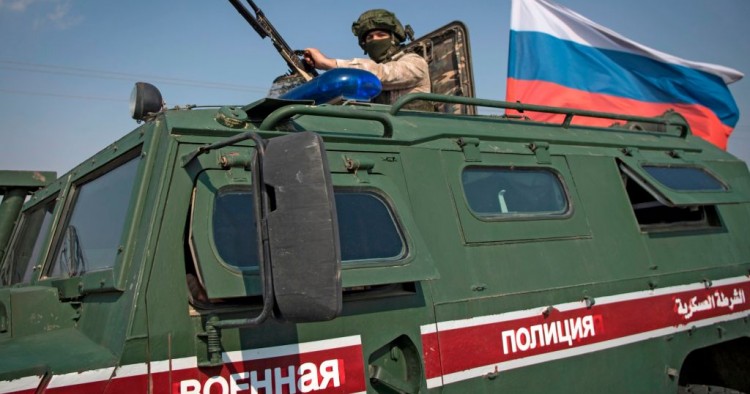The situation in eastern Syria is becoming clearer as the Turkey-Russia agreement for security along the Turkish-Syrian border is coming into effect. The Turkish forces are consolidating their new zone on the border between Tel Abyad and Ras-al Ayn. There is still sporadic fighting between Turkish-allied Syrian rebels and Syrian Kurdish-led Syrian Democratic Forces (SDF) near one avenue of the Turkish incursion. On Oct. 28 a Russian commander reminded the SDF that it must withdraw 30 kilometers south of the border by Oct. 29, and also withdraw from Manbij and Tel Rifaat, cities west of the Euphrates River. Syrian army units are deploying at border posts in the northeast corner of Syria, and south of them Russian and Turkish forces will patrol a 15-kilometer strip.
Meanwhile, over the weekend several hundred American troops and heavy equipment redeployed between Hasakeh and Deir ez-Zor south of the Turkish-Russian patrol zone. American officials state that their objective is to prevent ISIS or the Syrian government from seizing the low-value oilfields in the area. One big question surrounding the improvised American plan is control of the air in eastern Syria; the Russians will not want to accept patrolling under an American no-fly zone. The Syrian government, backed by Russia and Iran, will keep pressing the Americans to withdraw entirely from Syria.
The Americans still hope they can extract political concessions from Damascus. On Oct. 31 the UN will convene in Geneva the first meeting of the 150-member Syrian committee that will discuss amending or rewriting the current constitution. The talks will be contentious. Damascus’ position is marginally stronger, and it is unlikely to concede anything of substance in Geneva despite continued American control of Deir ez-Zor’s oilfields.
Robert Ford is a Senior Fellow at MEI.
Photo by AFP via Getty Images
The Middle East Institute (MEI) is an independent, non-partisan, non-for-profit, educational organization. It does not engage in advocacy and its scholars’ opinions are their own. MEI welcomes financial donations, but retains sole editorial control over its work and its publications reflect only the authors’ views. For a listing of MEI donors, please click here.













